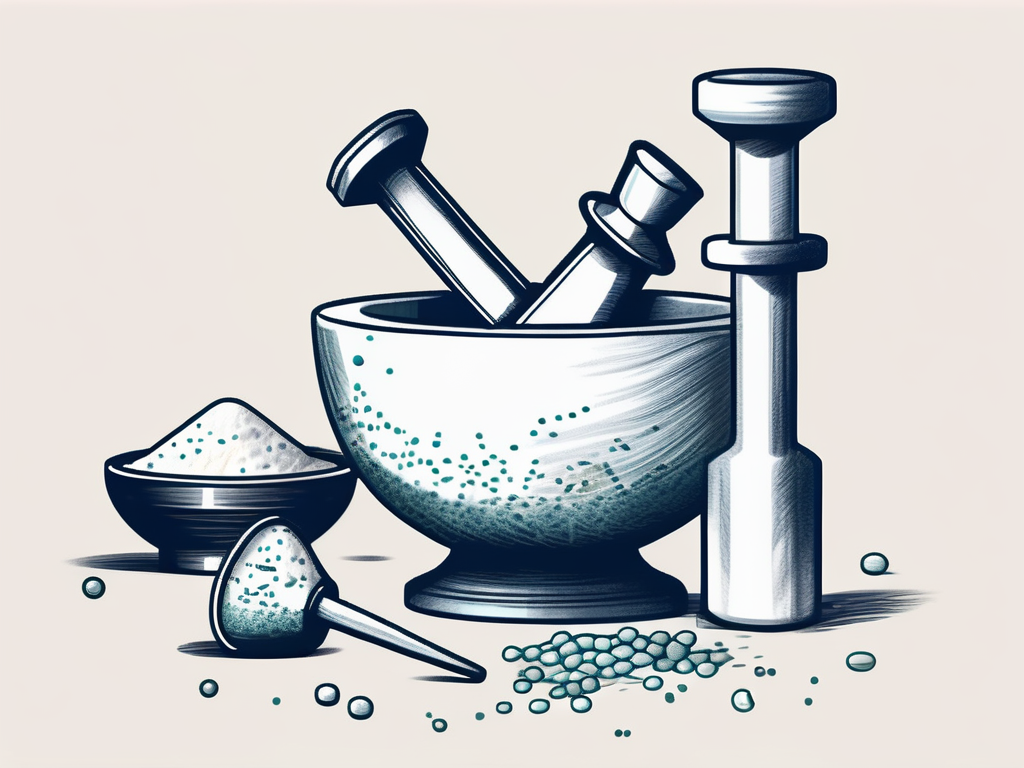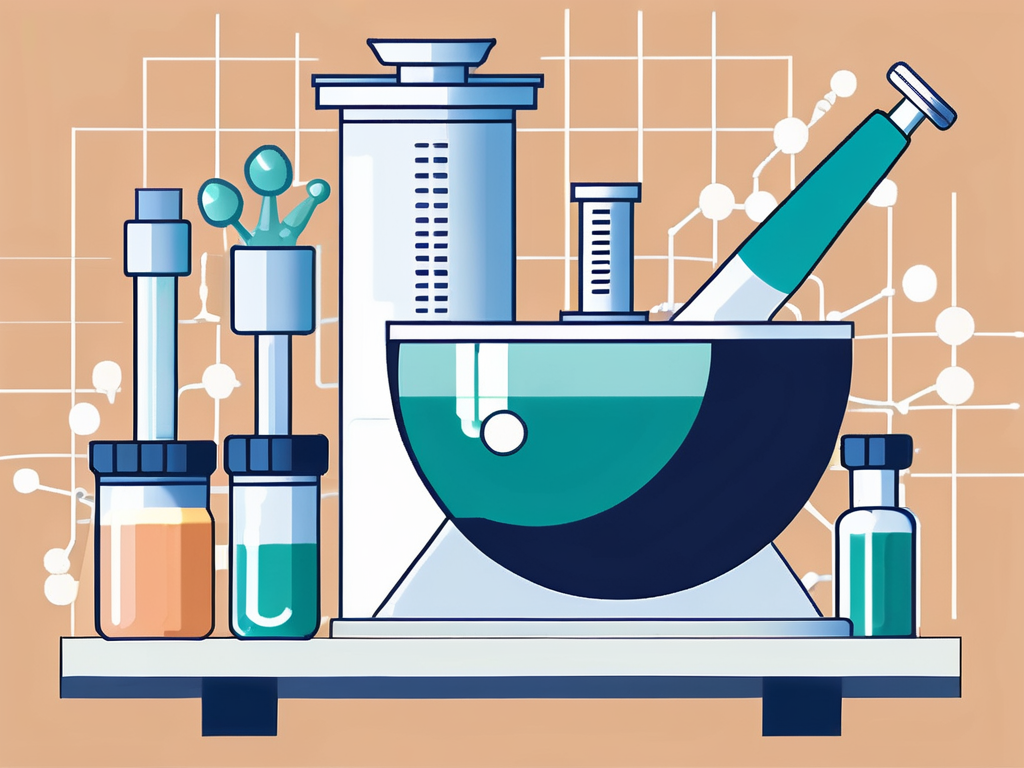The world of pharmacy is vast and complex, with many terms and concepts that can be difficult to understand for those not in the field. One such term is ‘Active Pharmaceutical Ingredient’ or API. This is a crucial component in the creation of medications, and understanding it can provide a deeper insight into how our medicines are made and how they work.
APIs play a central role in compounding pharmacies, which are specialized pharmacies that create personalized medications for patients. These pharmacies use APIs to create medications that are tailored to the specific needs of each patient. This can include creating medications that are free from certain allergens, are in a different form (such as a liquid instead of a pill), or that contain a specific dose of a medication.
What is an Active Pharmaceutical Ingredient (API)?
An Active Pharmaceutical Ingredient (API) is the component of a medication that produces the intended effects. In other words, it is the part of the medication that makes it work. APIs can be made from a variety of sources, including plants, animals, and synthetic processes. The specific API used in a medication will depend on the intended effect of the medication.

For example, the API in a pain reliever is the component that relieves pain, while the API in an antibiotic is the component that kills or inhibits the growth of bacteria. APIs are carefully selected and tested to ensure they are safe and effective for their intended use.
How are APIs made?
APIs are made through a variety of processes, depending on the specific API. Some APIs are extracted from natural sources, such as plants or animals. For example, the API in aspirin is derived from the bark of the willow tree. Other APIs are made through synthetic processes in a laboratory.
The process of making an API involves several steps, including synthesis (combining various chemical ingredients), purification (removing unwanted substances), and testing (ensuring the API is safe and effective). This process requires a high level of expertise and precision, as any mistakes can result in an ineffective or potentially harmful medication.
Regulation of APIs
APIs are heavily regulated to ensure they are safe and effective. This includes regulations on how they are made, tested, and used. In the United States, the Food and Drug Administration (FDA) is responsible for regulating APIs. This includes setting standards for the production and testing of APIs, as well as reviewing and approving new APIs.
Regulations on APIs are also in place in other countries, with similar agencies responsible for their oversight. These regulations help ensure that the medications we take are safe and effective.
What is a Compounding Pharmacy?
A compounding pharmacy is a specialized pharmacy that creates personalized medications for patients. This is done by combining, mixing, or altering ingredients to create a medication that meets the specific needs of a patient. This can include creating a medication in a different form (such as a liquid instead of a pill), creating a medication that is free from certain allergens, or creating a medication with a specific dose.

Compounding pharmacies play a crucial role in healthcare, as they allow for personalized treatment plans. This can be particularly beneficial for patients who have unique needs that cannot be met by commercially available medications.
How does a Compounding Pharmacy work?
A compounding pharmacy works by creating personalized medications based on the specific needs of a patient. This is done by a trained pharmacist who combines, mixes, or alters ingredients to create a medication that meets the specific needs of a patient.
The process begins with a prescription from a healthcare provider. The prescription will specify the medication, the dose, and any specific requirements (such as a different form or the removal of certain allergens). The pharmacist will then use this information to create the medication, using precise techniques and equipment to ensure the medication is safe and effective.
Regulation of Compounding Pharmacies
Compounding pharmacies are also heavily regulated to ensure they are safe and effective. This includes regulations on how they create medications, the ingredients they use, and the equipment and techniques they use. In the United States, compounding pharmacies are regulated by both the FDA and state pharmacy boards.
These regulations help ensure that the medications created by compounding pharmacies are safe and effective. They also help ensure that compounding pharmacies are using appropriate techniques and equipment, and that they are following proper procedures for creating medications.
Role of APIs in Compounding Pharmacies
APIs play a crucial role in compounding pharmacies. They are the components that make the medications work, and they are carefully selected and combined to create personalized medications. The specific APIs used in a compounding pharmacy will depend on the specific needs of the patients they serve.

For example, a compounding pharmacy may use a specific API to create a medication for a patient who is allergic to a component of a commercially available medication. Or, they may use a specific API to create a medication in a different form (such as a liquid) for a patient who has difficulty swallowing pills.
Selection of APIs
The selection of APIs in a compounding pharmacy is a careful process. The pharmacist must consider the specific needs of the patient, the intended effect of the medication, and the safety and effectiveness of the API. This requires a high level of expertise and knowledge about various APIs and their effects.
Once the API is selected, it is combined with other ingredients to create the medication. This process requires precise techniques and equipment to ensure the medication is safe and effective.
Testing of APIs
APIs used in compounding pharmacies are also carefully tested to ensure they are safe and effective. This includes testing the API itself, as well as testing the final medication. Testing is crucial to ensure the medication is safe for the patient and will produce the intended effects.
Testing can involve a variety of methods, including laboratory tests and clinical trials. These tests help ensure the API is safe, effective, and suitable for use in the medication.
Conclusion
The world of pharmacy is complex and fascinating, with many terms and concepts that are crucial to understanding how our medications are made and how they work. APIs and compounding pharmacies are two such concepts, and understanding them can provide a deeper insight into the world of pharmacy.
APIs are the components of our medications that make them work, and they are carefully selected and tested to ensure they are safe and effective. Compounding pharmacies use these APIs to create personalized medications that meet the specific needs of each patient. This can include creating medications in a different form, free from certain allergens, or with a specific dose. Understanding these concepts can help us better understand the medications we take and the process behind their creation.


